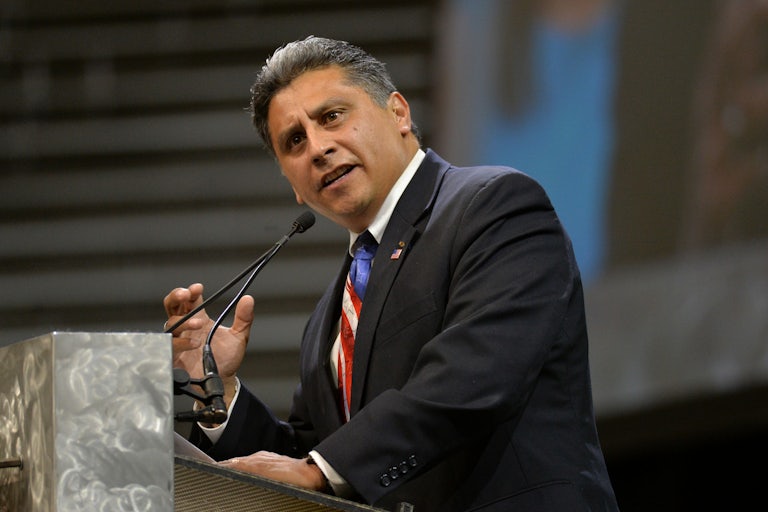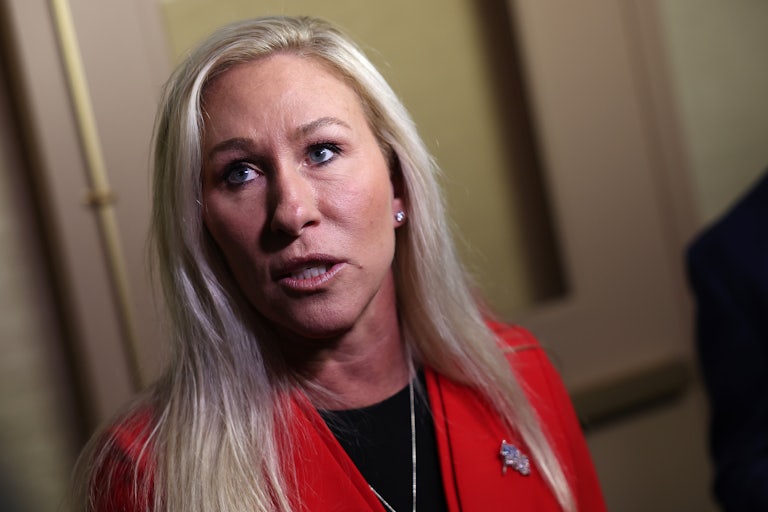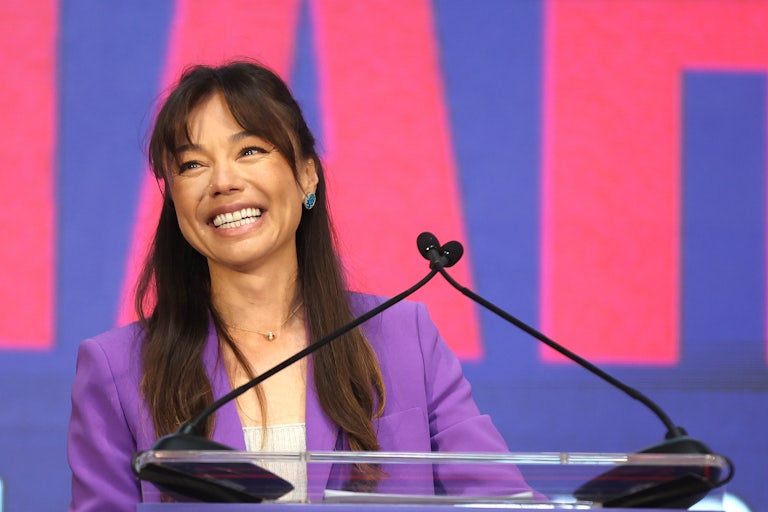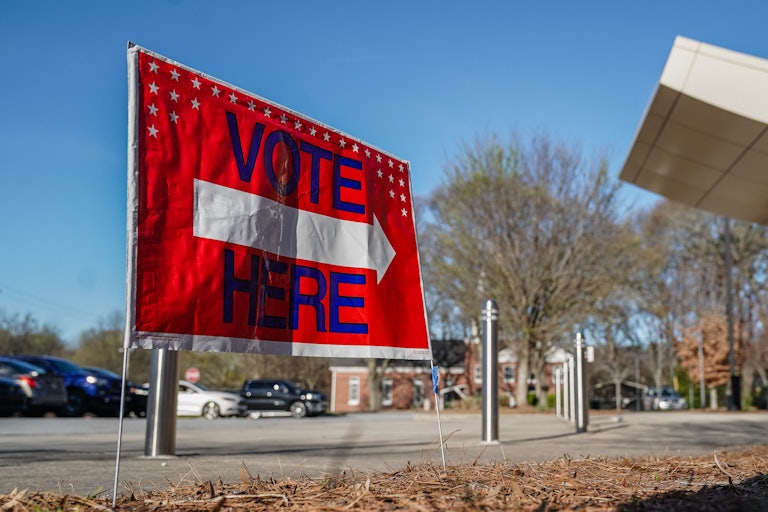New Jersey Judge Kills the County Line and Sets Off Primary Earthquake
New Jersey ballots are about to look a whole lot different.

Party backed-candidates competing in New Jersey’s elections will no longer have a leading edge after a judge ruled on Friday that the state’s controversial balloting system must undergo an immediate redesign, with the “integrity of the democratic process” at stake.
The decision is a major win for Representative Andy Kim, who, along with House candidates Sarah Schoengood and Carolyn Rush, brought the lawsuit to buck the state establishment and a coalition of local party bosses. The decision will level out the playing field in the state’s June 4 primary to replace indicted Senator Bob Menendez, who faces charges of corruption and obstruction of justice for allegedly acting as a foreign agent and accepting bribes in exchange for coordinating business deals between New Jersey real estate titans and Qatar and Egypt. So far, Menendez has refused to resign and has even left the door open for himself to run for reelection as an independent candidate.
The ruling will scrap a feature of the Garden State’s ballot known as the “county line”—an entire column, usually the first, leftmost line—that allowed each county to prominently advertise the candidate that its local party wanted to feature in the ballot’s prime real estate. Candidates who didn’t win the coveted nomination would be relegated to what was referred to as “ballot Siberia,” columns so far away from the county line that they were practically abandoned.
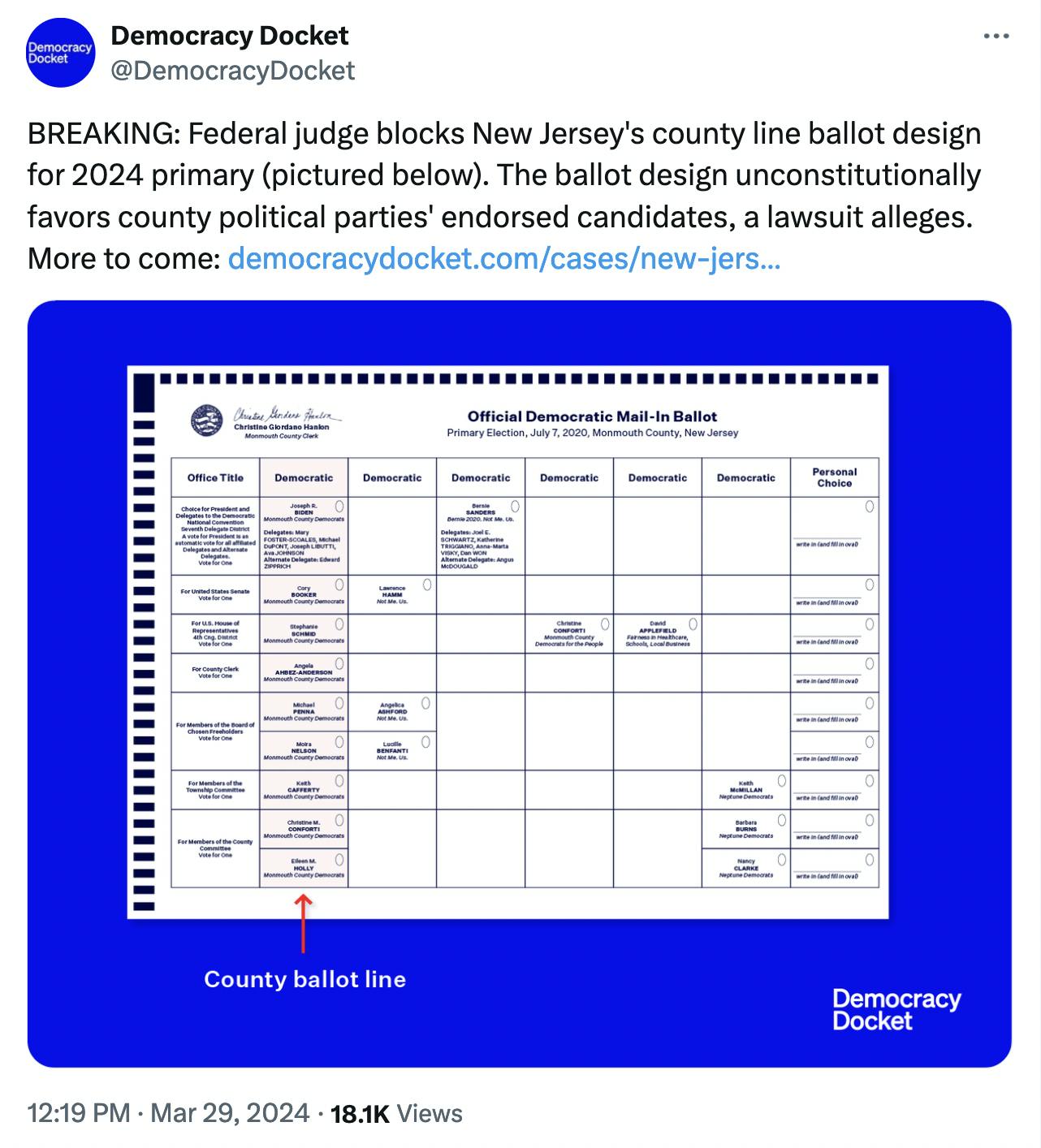
“Plaintiffs have put forth credible evidence not only that their constitutional rights are violated by the present ballot design used in New Jersey, which is used in no other state in the country,” wrote U.S. District Court Judge Zahid Quraishi in a 49-page decision, noting that “defendants would suffer minimal harm in implementing the ballot design requested.”
“The integrity of the democratic process for a primary election is at stake and the remedy Plaintiffs are seeking is extraordinary. Mandatory injunctive relief is reserved only for the most unusual cases. Plaintiffs’ burden on this Motion is therefore particularly heavy,” concluded Quraishi. “Nevertheless, the Court finds, based on this record, that Plaintiffs have met their burden and that this is the rare instance when mandatory relief is warranted.”
